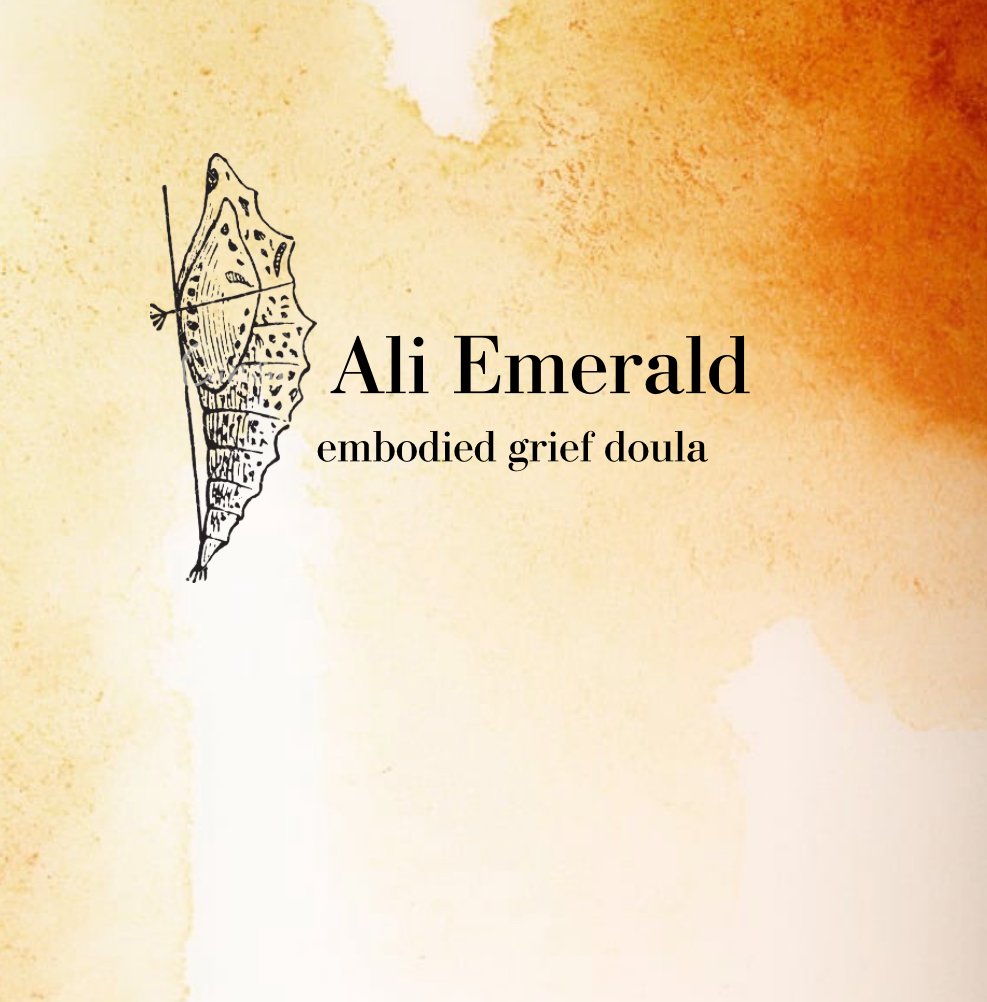death poetry
Sometime during the day my hair falls flat. Oily, the darkness of my roots a sharp contrast from the golden copper of the rest of my hair, I scoop it up in a messy bun I knot on top of my head.
I’ve spent the entire day among the dying and still have the audacity to wonder why I’m exhausted.
Late into the night, around the same time 27 years ago my mother had roared me into the world, my words were officially published in Canada’s biggest literary medical journal.
The first person I told was my brother. The second was my writing teacher. The third my mother.
I log on to a zoom call with a woman who offers me a job as a poet for the bereaved and dying. She doesn’t say it that way, of course. She simply asks if I want to write, share rituals and insights, with a community who are all limping their way along in one way or another towards an untimely death.
Untimely, they say, as we are staring down the barrel of a gun. I’ve always had a fascination with death, since the very moment I realized I was also dying.
On the Friday before my birthday, I talk to my uncle on the phone, who is a funeral director a few provinces over. I have just taken a training on perinatal loss, which is a fancy word for dead babies and wombs turned coffins. There are words we wrap around the topic to avoid saying anything of death. I love the word death. I imagine her as kind and loving, wise and gentle. I should know: she took my son. He tells me in clinical language about the kind of losses that don’t require a funeral home or an official certificate of death for a body, the cost to bury tiny things in cemeteries, the aching smallness of the coffins. I know, because I held one in my hands. A dead child, a shoebox coffin. Where he was wrapped in a blanket that would have still been far too big, resembling tadpole more than human child. He died, and people ask why I don’t use gentler language but there is nothing gentle about the truth. It is relentless and unforgiving. It doesn’t care if you are ready or not. I suggest you get ready.
An old friend of mine who shares a name with my father messages me about the article that I wrote, says “You said the quiet part out loud. Thank you for saying what we were all too afraid to say.”
My heart pauses. It’s an honour.
When I write about transplantation, I’m writing about death equally as much as I’m writing about life. When I say it, people tend to shrink back into the corners. How dare I? How dare I, when the only reason I’m still alive is because someone else is dead? Tell me how I can burn this knowing from my bones.
And even if you told me, I wouldn’t want to. Because death is kind and wise and I don’t want a life without death.
There’s an old story, about a white missionary and an indigenous people group. The missionary evangelises to the group of people, loudly and exuberantly, claiming his good news. Jesus loves you and has come to save you from sin and death. It reminds me of the lectures I heard in Bible College, when I still believed that way.
The chief among them, he approached the missionary. Pondered what he had to say. And just when the missionary thought he’d convinced this man, that he had the chief and so he could sway the entire tribe, the chief began to laugh.
And he talked about their death practices, how in their culture when someone died a big feast was had and whatever wisdom that individual had acquired during their lifetime was shared, and no, he wouldn’t deprive his village of the medicine of his death. Death isn’t something to be avoided.
I think likewise. I write poems for grievers and sit in circles with parents who have buried their children in cemeteries and backyards, say the quiet parts out loud and talk about the ways in which death has been kind to me. I live with death sutured right up against my ribcage. She has taught me much, and given me life, and I’d be a fool to deny her.
The medical journal I wrote in was called artistic reimaginings of transplantation, and it makes me hopeful for the future. This is how we survive. We come together, link arms, imagine a better way forward. In reading articles - both my own and written by others in the community - we all acknowledge the silent contradictions we’ve found ourselves in. We tell stories and create myths and use metaphor and paints and song to call out to one another across the void, to call each other home.
I think in order to survive we have to acknowledge the death. Otherwise what are we alive for?
If we do not learn how to hold it, we are denying the medicine.
I am a part of a group of people. We sit around the fire and tell stories of our dead. We claim them, whether or not we were required to by law. We integrate them into our own bodies, extending our own boundaries in the process, and let them make fertile soil out of us. We hand each other prose and art as a way of facing an uncharted future.
I hope when I die, every bit of the gentleness I know to be true of death comes to meet me. I hope I am claimed, in life and in death, with all the love and tenderness life has to offer. I hope there is a feast, and my wisdom is shared around the fire. I hope I am medicine.
